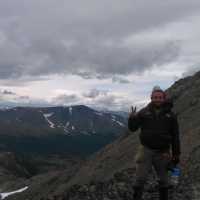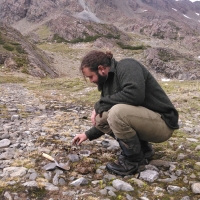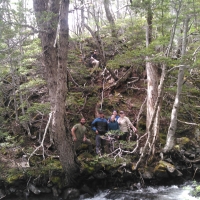Jose Sanchez-Ruiz is a graduate student at Georgia Southern University pursuing a Master of Science degree in Biology and Ecology. His main research area involves assessing stream ecosystem processes and the effects of invasive species on the dynamic between aquatic and terrestrial environments.
Jose worked with mentors Dr. James Kennedy in the U.S. and with Dr. Tamara Contador at the Omora Ethnobotanical Park on Navarino Island near Puerto Williams, Chile.
Jose says about his experience, "As a biologist, I have traveled internationally several times (Costa Rica, Colombia, Iceland, etc.) and spend several months on those countries doing research. I would say the IRES grant has given me the best experience so far. The Biocultural Conservation Program in Chile adds the local culture as an integrative component of the science, something I found lacking in other experiences. Additionally, the research was amazing. I had the opportunity to work with Tamara Contador and James Kennedy in a component of a major national project, INVASAL. Working in Navarino was also an experience. This is a remote, pristine and beautiful island with the cleanest water in the world. Every day hikes to field sites changes the meaning of fieldwork in a great way. I came out of Chile with many new friends worldwide, many memories, great research, and a better understanding of Chilean culture. A life-changing experience for sure."



Jose presented his research at a conference this summer.
The Congreso Aquatrop will be held in Quito, Ecuador. At this congress, Jose will present a paper titled, "Assessing the effects of invasive salmonids on aquatic and riparian arthropod communities in the Robalo, a sub-Antarctic river in southern Chile," co-authored by Sabrina Moore, Tamara Contador, Gillian Graham, James Kennedy, and Jaime Jiménez.
UPDATES from Jose:
The Aquatrop meeting in Ecuador represented an amazing opportunity to present the research I did in Chile. This meeting serves as a network for aquatic ecosystem science in Central and South America. An internation presence of over 400 persons attended the meeting. Ours was the only project based in Chile. Already, I've been approached with the idea of contacting Chilean scientists to be part of the network.